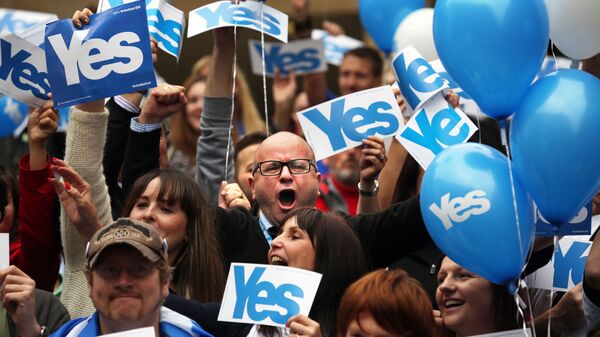Polling data reveals that the "gender gap" that has plagued Scottish independence support is disappearing, according to Professor Sir John Curtice.
The election expert said that polls from 2014, when the last referendum on leaving the UK took place, discovered that men were significantly more likely to vote Yes than women, who largely backed No.
However, Sir John, who teaches Politics at the University of Strathclyde, claimed that recent studies identified a shrinking or entirely eliminated gap, while the same surveys show support for independence jumping above 50%.
UK (Scotland), Savanta ComRes poll:
— Europe Elects (@EuropeElects) August 19, 2020
Should Scotland be an independent country?
Yes: 54% (+9)
No: 46% (-9)
+/- vs. 2014 independence referendum
Fieldwork: 6-13 August 2020
Sample size: N/A
➤ https://t.co/7gcpMz8djk#indyref2 #indyref #Scotland pic.twitter.com/oHpXWbYmEi
In a blog post, he analysed recent polling on support for Scotland's withdrawal from the UK on the website: What Scotland Thinks.
"The fact that we have had two polls whose fieldwork dates overlap, one pointing to a further increase in support for independence and one not, means that at this stage at least we have to reserve judgment on whether there has been a further increase on the modest lead for Yes that has been consistently reported by the polls since June", he said.
He made reference to the Ipsos MORI and Savanta ComRes poll's which showed support for independence reaching 58% and 54% respectively, saying that as they are the first of this year "we have no previous reading from the coronavirus era with which to compare their latest reading".
🏴 Support for independence is at a record 58%.
— Yes (@YesScot) October 14, 2020
New poll on Scottish independence from Ipsos MORI and STV News:
YES: 58%
NO: 42%
📈 The surge in support continues with 10th consecutive poll showing showing Yes leading.
✍️ Scotland must have a choice. https://t.co/1TBOd5pYT1 pic.twitter.com/VmYyb4YL9j
"What we can say on the basis of the two polls is that there continues to be a sustained lead for Yes - it is now nine polls in a row that have put Yes ahead, a wholly unprecedented picture".
Curtice identified two major shifts as polling in support of independence as sentiment becomes the majority opinion: gender and age.
"It may, perhaps, even be the case that a narrow majority of men voted Yes in 2014 and either way the No victory appeared to rest heavily on the support of women - who perhaps were more averse to what they considered to be the risks of independence", he said.
He identified that the picture now "appears to be rather different. On average the last nine polls have put support for Yes at 54 per cent".
"These same nine polls on average put the figure for both men and women at 54 per cent too", Curtice added.
According to the Uni of Strathclyde professor, younger voters back a Yes vote to a larger number than older Scots, as the public is finding it "difficult to follow" the nature of transferring EU powers after the UK leaves the bloc.
Support for Scottish independence has consistently increased following the 2016 decision to leave the EU, which was largely won on English vote. After the December 2019 general election where Boris Johnson's Conservatives were returned to power with an 80-seat majority, polling has shown Yes rising significantly above the No side.




